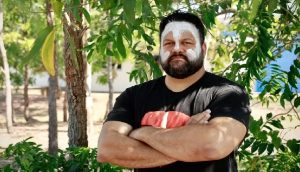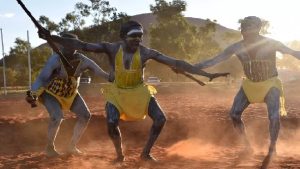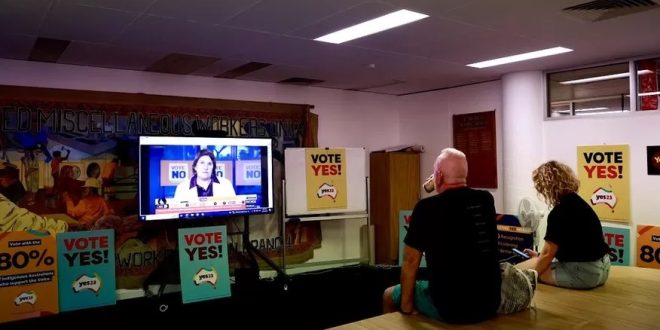16-10-2023
Bureau Report + Agencies
SYDNEY: Nigel Browne woke up on Sunday questioning his place in Australia – a painfully ironic fate for one of its First Peoples. The oldest living culture on earth, they have inhabited the country for at least 65,000 years.
 The day before, Australians rejected a referendum on whether to recognize Aboriginal and Torres Strait Islander people in the nation’s 122-year-old constitution, and give them greater political say.
The day before, Australians rejected a referendum on whether to recognize Aboriginal and Torres Strait Islander people in the nation’s 122-year-old constitution, and give them greater political say.
There was no expectation the “Voice to Parliament” – an advisory body made up of Indigenous people – would be a miracle cure for the problems they face but when current efforts to “close the gaps” in life outcomes between First Nations people and non-Indigenous Australians have instead seen many widen, the Voice was a new approach that offered a glimmer of hope for many.
Prime Minister Anthony Albanese argued the Voice vote could unite Australia. But others remained convinced such a proposal would divide it.
It also faced criticism from a bloc of Indigenous people who believed it wouldn’t be powerful enough. Others saw it is a symbolic gesture and believed that money could be better spent on immediate solutions.
After a resounding 60% of people voted “No”, the nation as a whole is tending to the wounds caused by months of brutal debate.
“To me it basically says you are still not a part of a country that’s supposed to be… the country of a fair go,” Browne said.
 “(It says) you are not my equal and as for your infant mortality rate, your mortality rate, your incarceration, your education, your health? Suck it up.”
“(It says) you are not my equal and as for your infant mortality rate, your mortality rate, your incarceration, your education, your health? Suck it up.”
Australia calls itself “the Lucky Country”, he added, “but lucky for who, is the question?”
Back in 2017, Browne was among the more than 250 people from many different Aboriginal and Torres Strait Islander nations who signed the Uluru Statement from the Heart, a historic petition which calls for, among other things, the Voice.
It was a result of years of advocacy by prominent Indigenous Australians and built on a more-than-century-long struggle for self-determination and recognition.
“We came together in good faith with an invitation to the country to help Aboriginal Australia lift itself up by its own bootstraps,” the Larrakia Wulna man said.
Six years later, the arguments against the Voice remain largely the same as those aired in 2017, when the then government rejected the Uluru Statement – it would have too much influence on parliament and could give First Nations people more rights than other Australians, they claimed.
 Pressmediaofindia
Pressmediaofindia




